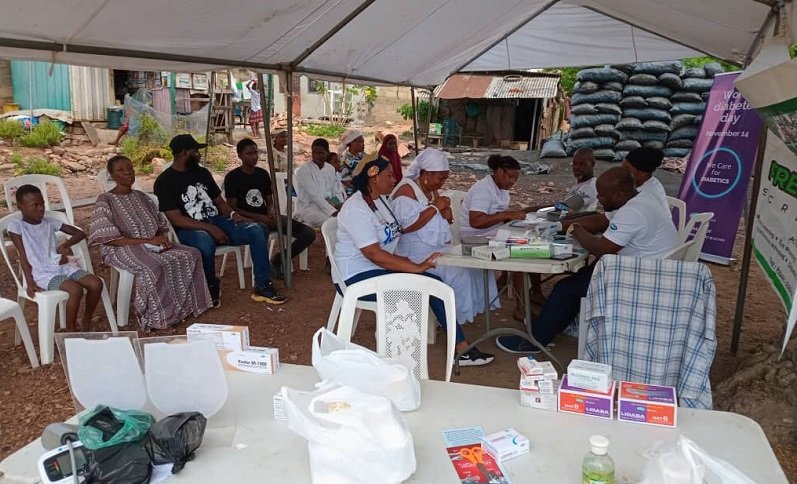A physician assistant with the Salvation Army Anidasofie Clinic at Kokomlemle, a suburb of Accra, Ms Rabiatu Wattigi Mahmoud, has advised patients suffering from hypertension and diabetes against default in medication.
She said medication for such conditions were for life and that defaulting in hypertension medication would result in stroke and other debilitating conditions.
Ms Mahmoud, who is also the Founder and Executive Director of Health Belt Foundation, a non-governmental organisation, was speaking to The Ghanaian Times on Sunday during a health screening organised by the foundation for the Weija community in the Ga South Municipal, as part of the World Diabetes Day which is observed on November 14.
She expressed worry over the default rate among diabetes and hypertension patients saying, “We met a lot of defaulters, we met some diabetic cases who are not taking their medications and their sugars levels are very high.”
Similarly, “We met a number of hypertensive cases who have defaulted in their medications and their blood pressures are very high, we have counselled them on the dangers of stroke and other complications that they might suffer from defaulting in their medications, including chronic kidney and acute kidney cases. We have counselled them to continue with their medication, and we refer others to the hospital.”
“Hypertension is controlled. It is not cured. It’s controlled just like asthma, just like diabetes. And that is the challenge we are having with the general population.
The physician assistant added that, “it seems people have not come to terms with the fact that they would have to still be taking their medication for life. And sometimes they get people who tell them they will give them herbal preparations and they fall to it.”
Ms Mahmoud further iindicated that there was no scientific proof of any herbal medication currently in Ghana that was curing diabetes and hypertension.
She commended the residents for patronising the health screening, saying, “So once you know your health status, you’ve got half the cure. The rest of the 50 per cent is based on you to take your medication and take it seriously so that you are not overtaking by certain circumstances like suffering, a serious stroke, or anything else, a kidney problem.”
All medications do have side effects. But sometimes you weigh the merits and demerits. If the merits outweigh the demerits, then of course, you have to be on it,” she stressed.
On the screening, she noted, “That’s the essence of screening exercises like this. At least when we go into communities, people get to know their health status, if even they already have the conditions, they get to know if it’s better or worse.”
“Malaria seems to be on top because we screened for it .And the second seems to be upper respiratory tract infection. Some infections are in the air, some droplets. So, a lot of people showed up with cold and coughs. We took care of it.”
“We want people to go for constant screening. We don’t have to even come to the communities, they should check themselves. Go out of your way, go to a nearest pharmacy if you don’t have this thing to check. So, just monitoring it and keeping an eye on your blood pressure, it will save the whole situation.”
BY ALHAJI SALIFU
ABDUL-RAHAMAN

